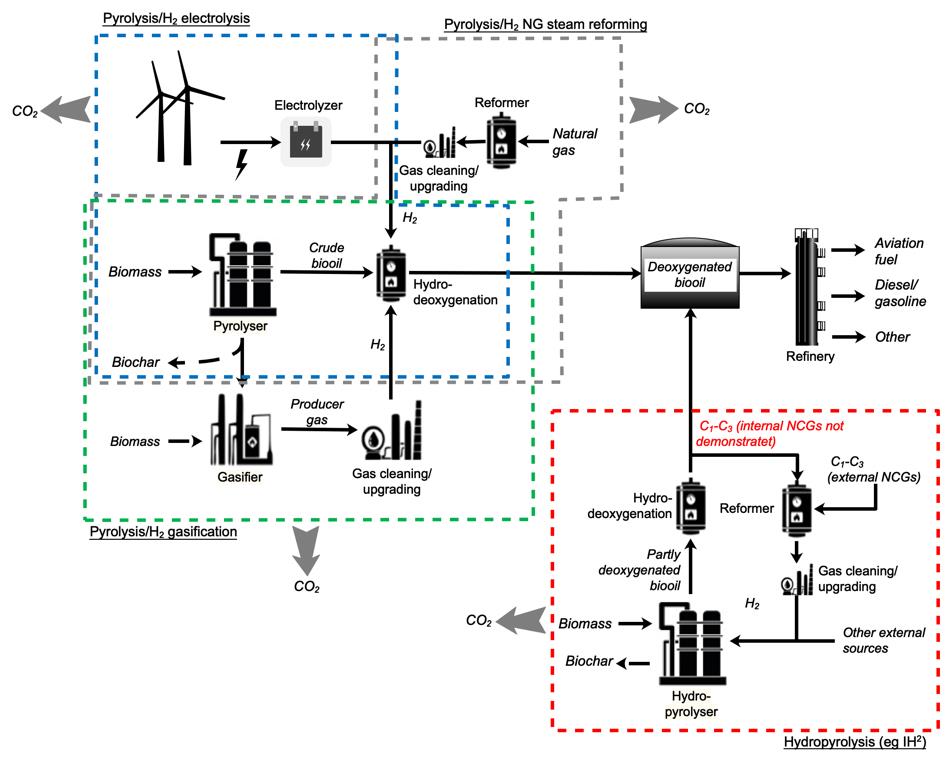Routes for production of transportation fuels via deoxygenated bio oil
Hydrogen is necessary for Sweden to have transportation fuels from biogenic feedstocks. In Prodeox, we are researching techno-economic and environment friendly processes to produce this hydrogen.
This project is carried out within the collaborative research program Renewable transportation fuels and systems (Förnybara drivmedel och system), Project no. P50466-1. The project is financed by the Swedish Energy Agency and f3 – Swedish Knowledge Centre for Renewable Transportation Fuels. Large R&D efforts have been directed towards studying pyrolysis processes for biooil production and upgrading to transportation fuels. However, there is still a gap in scientific literature about integration of different processes/technologies for producing clean hydrogen for the hydrodeoxygenation step for bio-oil upgrading.

This project aims at developing and strengthening knowledge about production of biofuels via biomass feedstock pyrolysis and hydrodeoxygenation, including various hydrogen sources, to produce stable bio-oil that can be further upgraded in existing refinery plants to gasoline, diesel and jet fuel. Four different process routes, including also the refinery and CCS (when relevant) will be investigated.
Key performance indicators associated with energy and economic performance and important insights on opportunities and constraints of possible utilization and integration of process routes in existing infrastructure will be provided. The project partners include KTH Royal Institute of Technology, Chalmers University of Technology and Cortus Energy AB.
